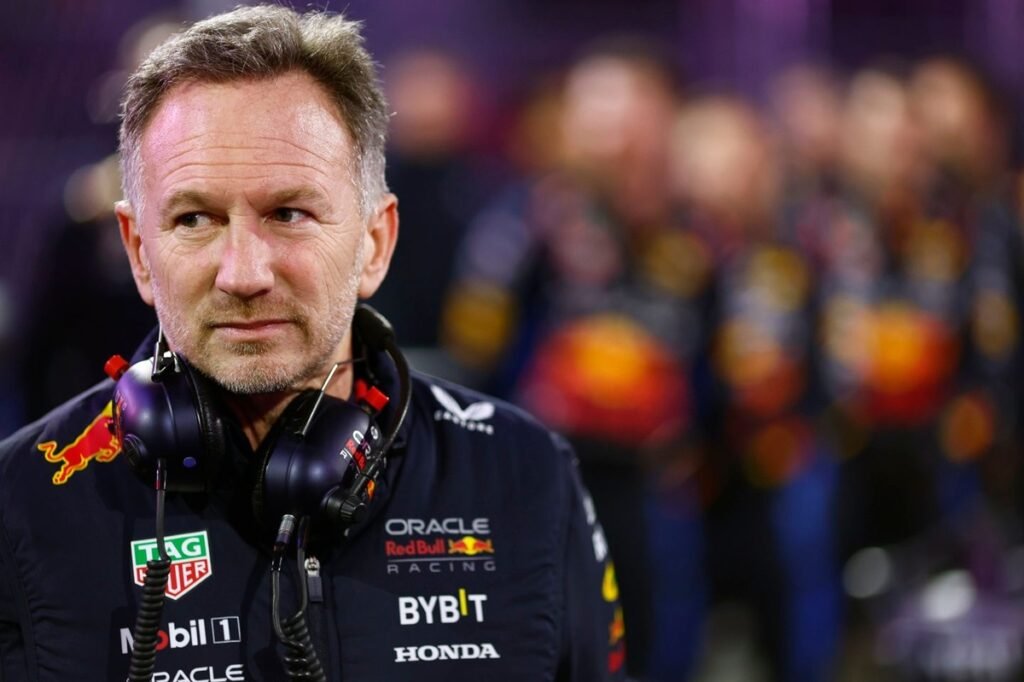Red Bull Racing Faces Unprecedented Challenges After Horner’s Departure
In a significant shakeup, Red Bull Racing has parted ways with team principal Christian Horner, marking a pivotal moment in the franchise’s storied history. This decision comes amid a stark decline in performance, transitioning from dominating the 2023 season—where they secured all but one victory—to potentially finishing the 2025 season without any championship titles.
The complexities of Red Bull’s decline are evident in their technical struggles with the RB21, which operates within a narrow performance window. While competitors like McLaren exhibit marked improvement, Red Bull has not managed to expand its car’s operational capabilities without diminishing performance, prompting concerns about the current development trajectory.
Operational efficiency has also waned since the exit of key personnel like Jonathan Wheatley, evident in recent pit stop mishaps in Miami and Bahrain. The team’s strategic decisions, including tire choices during key races, have raised eyebrows, signaling a decline in the decision-making prowess historically associated with the outfit.
Team advisor Helmut Marko acknowledged the uphill battle ahead, admitting that upcoming upgrades are unlikely to salvage the current season. With a focus on long-term rebuilding, the team recognizes that significant structural changes are essential, regardless of who leads. As Horner noted in his final press conference, “Sport goes in cycles,” emphasizing the need for a new foundation to prepare for future success.
The Future Without Verstappen?
The ongoing dependency on Max Verstappen poses further complications for Red Bull. With Verstappen as the team’s sole consistently high-performing driver, losing him could necessitate a fundamental reevaluation of team dynamics and technical philosophy. Current statistics indicate that substituting Verstappen with a second driver would see Red Bull significantly drop in the Constructors’ Championship rankings.
New team principal Laurent Mekies has experience with younger drivers but faces a pressing need to stabilize the driver lineup as they navigate the 2026 regulations. A key question remains: can Red Bull attract and develop new talent that meets the performance demands established by Verstappen?
Engine Development: A Long-Term Investment
An in-house engine project with Ford is critical for Red Bull’s future competitiveness. Ford Performance’s global director, Mark Rushbrook, confirmed that while development milestones are largely being met, expectations must be managed due to the complexities of integrating a new power unit. Horner labeled the project as a long-term investment, citing the benefits of closer collaboration between chassis and engine engineers. However, meeting immediate competitive benchmarks within the 2026 season remains a daunting challenge.
Technical Troubles and Questions Ahead
The team’s technical issues trace back to outdated resources, including an aging wind tunnel. Without Adrian Newey’s iconic influence, the team’s current engineers must prove their mettle in overcoming these challenges. The upcoming regulatory changes will be crucial for Red Bull, making their ability to adapt and execute successful designs a definitive test of their organizational strength.
Conclusion
Red Bull Racing must navigate a transitional phase marked by internal strife and evolving technical demands if they are to reclaim their former status in the sport. With a focus on culture, stability, and a reimagined competitive framework, the team enters a critical period, aiming to unlock the potential for a new era of success—one that may unfold in the coming years, and importantly, hinges on the future role of Max Verstappen.


